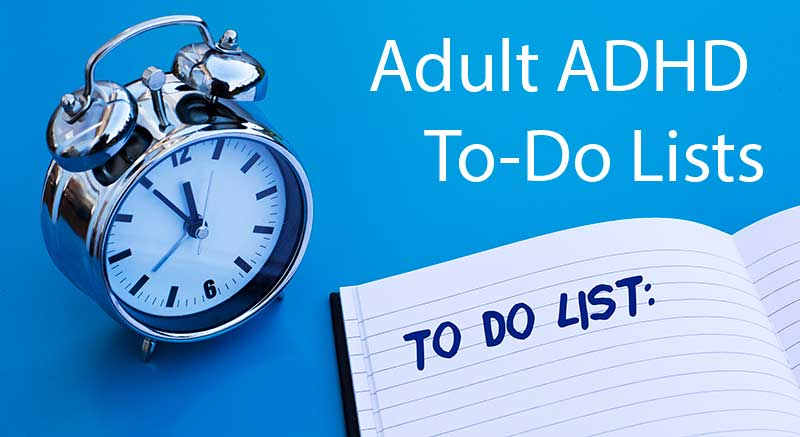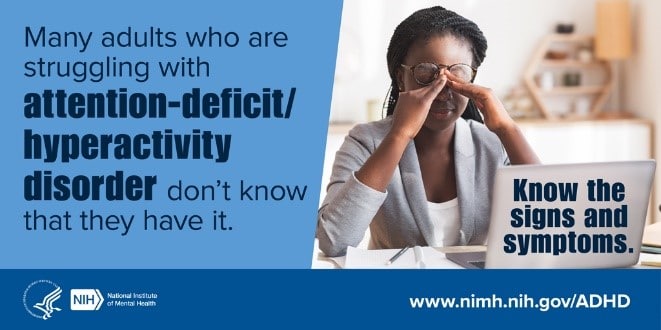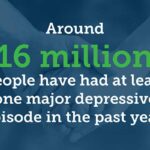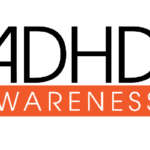Do I Have Undiagnosed Adult ADHD?

Have you have struggled throughout your life with poor concentration, inattention, anxiety, impulsivity, and getting organized? Have you wondered, or has someone one asked you, “Do you have ADHD?”
If the answer to any of the aforementioned questions is yes, we recommend a professional psychiatric evaluation by a psychiatrist with experience diagnosing ADHD. The Novum Psychiatry team with offices in Sudbury and Plainville, MA is highly experienced in the diagnosis and treatment of Adult ADHD.
Getting an evaluation can help you find the right answers to your struggles and get the treatment you need to feel better. Here are some of the biggest questions we hear regarding Adult ADHD:
- Are ADD and ADHD the same?
- What are the signs of adult ADHD?
- How is ADHD diagnosed in adults?
- What strategies can adults with ADHD adopt to cope with symptoms of ADHD?
- Is there a connection between ADHD and anxiety?
- Can ADD and ADHD be Treated Without Medication?
- Can Diet and Exercise Improve ADHD?
- What are the benefits of ADHD?
Our Experienced Team of Psychiatrists Can Help!
Our highly-trained psychiatrists and therapists offer a comprehensive and confidential approach to private, outpatient care for the treatment of adult ADD and ADHD. Whether this is your first time seeking psychiatric care or if you are seeking a new provider, Novum Psychiatry can help. In-person and telehealth appointments available. We accept health insurance.
1. Are ADD and ADHD the same?
Not necessarily. ADD is a type of ADHD without the hyperactivity component. We used to use these terms interchangeably and it is sometimes still correct, but not always. People with ADHD (Attention Deficit Hyperactivity Disorder) show an ongoing pattern of three different types of symptoms:
- Difficulty paying attention (inattention)
- Being overactive (hyperactivity)
- Acting without thinking (impulsivity)
However, ADHD without hyperactivity is ADHD Predominantly Inattentive Presentation (ADD). People with ADD don’t display the same high energy level seen in other people with ADHD and can even be rather shy and introverted. Signs of ADD include:
- A lack of ability to focus, problems staying on task
- Incessant talking, often with frequent interruptions
- Poor listening skills
- An inability to concentrate on instructions
- Poor follow-through
2. What are the signs of ADHD in adults?
To be diagnosed with ADHD, symptoms must get in the way of daily functioning. In adults, some of the common signs of ADHD are:
- Avoiding tasks that require sustained mental effort, such as completing paperwork and forms, preparing reports, or reading books
- Difficulty paying attention or staying focused
- Overlooking or missing details and making careless mistakes at work or school
- Problems with time management
- Problems managing finances, accumulation of debt by overspending and not saving money
- Not completing projects at work
- Have problems listening to long lectures or presentations
- Losing things – keys, paperwork, sunglasses, purse, cell phone, etc.
- Misses appointments and doesn’t return calls
- Extreme restlessness, talking, and wearing others out with constant activity
- Easily distracted by external stimuli
- Frequently forgetting appointments or commitments
- Difficulty controlling impulsive behaviors
- Frequently interrupting others
3. How is ADHD diagnosed in adults?
There is no single medical, genetic, or physical test for ADHD. The process for diagnosing ADHD is the same as for other mental illnesses.
A Novum Psychiatry psychiatrist will perform a diagnostic evaluation, gathering information from a variety of sources. Clinical guidelines for an ADHD diagnosis are provided by the American Psychiatric Association and guide a clinician’s evaluation and ADHD diagnosis.
Adults with undiagnosed ADHD may have a history of poor academic performance, problems at work, or difficult or failed relationships. Symptoms of ADHD look different at older ages. For example, hyperactivity may present as extreme restlessness.
ADHD symptoms in adults may become more severe as a person ages as a pattern of work and relationship problems point to a larger issue.

4. What strategies can adults with ADHD adopt to cope with symptoms of ADHD?
- Create a To-Do list each night before bed – Spend a few minutes before bed writing down your list for the following day.
- Take breaks – It’s important to take breaks and give your brain a chance to rest. Consider setting a timer to remind you to take short breaks throughout the day.
- Declutter your home and office space – Clutter is a common problem for adults with ADHD. Getting organized at home and work can help you stay focused on tasks and projects that are important in your life.
- Begin a savings plan – Develop a spending plan, track your spending (try Mint or Dave Ramsey’s EveryDollar), schedule bills to be paid automatically, and save for your future by setting aside a set amount of your income monthly into a dedicated savings or investment account.
- Curb impulse shopping – Stay away from situations you know are tempting for you to spend money (Costco, anyone?) Create a list and stick to it, track your spending, and wait at least 24 hours before any big purchases.
- Practice self-care. It’s important to take care of yourself and prioritize your physical and mental health. This may include getting enough sleep, eating a healthy diet, and engaging in activities that help you relax and reduce stress.
5. Is There a Connection Between ADHD and Anxiety?
Research published in November of 2021 has identified a link between Attention Deficit Hyperactivity Disorder (ADHD) and Generalized Anxiety Disorder.
In the study, 1 in 9 respondents with anxiety had ADHD, in contrast to 1 in 33 of those without anxiety. Authors also found that women with ADHD have four times the odds of experiencing generalized anxiety, and more than half of individuals with ADHD and anxiety also have experienced depression.
It’s important to note that not everyone with ADHD will experience anxiety, and not everyone with anxiety will have ADHD. It’s important to speak with a qualified mental health professional if you are concerned about the possibility of either condition, as both ADHD and anxiety are treatable conditions. A mental health professional can help you determine the best course of treatment based on your specific symptoms and needs.
6. Can ADD and ADHD be Treated Without Medication?
Most adults who receive a diagnosis of ADD / ADHD are treated with behavioral interventions, medication, or a combination of the two.
Psychotherapy, including cognitive behavioral therapy, can help an adult with ADHD become more aware of attention and concentration deficits and help provide skills for improving organization and efficiency in daily tasks. Psychotherapy is also helpful in addressing feelings of low self-esteem and reducing impulsive behaviors.
7. Can Diet and Exercise Improve ADHD?
There are few studies on ADHD diets, but most health experts believe that a “brain healthy” diet can help improve ADHD symptoms. A healthy brain diet is heavy in vegetables, berries, nuts and seeds, spices, whole grains, olive oil, healthy fat, and fish – and limits red meat and sugar.
Exercise is essential for a healthy brain. When you exercise, your brain releases neurotransmitters including dopamine – which helps with attention. Exercise can help adults with ADHD reduce stress, improve executive function (planning, organizing, and staying on task), and improve impulse control.
8. What are the benefits of ADHD?
It’s important to remember that ADHD is a complex condition that can have both challenges and benefits.
One of the interesting facts about ADHD in adults is that it forces you to think differently. Some individuals with ADHD may have a heightened sense of creativity and be able to think outside the box, enabling them to be particularly skilled at finding unique and innovative solutions to problems.
It’s not uncommon for people with ADHD to be particularly passionate and focused when they are interested in a particular subject. This may be due to the fact that ADHD is often associated with high levels of energy and intensity, which can make individuals with the condition particularly motivated and engaged when they are interested in something.
Research has suggested that people with ADHD may have a unique way of processing information, which can make them particularly adept at learning new things and solving problems in creative and innovative ways. When they are interested in a subject, they may be more likely to dive in and become deeply engaged in learning about it.
People with ADHD may be able to adapt to new situations and environments quickly.
One reason for this is that individuals with ADHD may have a heightened ability to process and react to stimuli in their environment. This may allow them to quickly respond to new situations and changes in their environment.
Another reason may be that individuals with ADHD tend to have a high level of energy and enthusiasm, which can help them approach new situations with a positive attitude and a willingness to try new things!
Help is Available
If you or someone you love is struggling with symptoms of ADHD, please contact Novum Psychiatry for a confidential evaluation.






